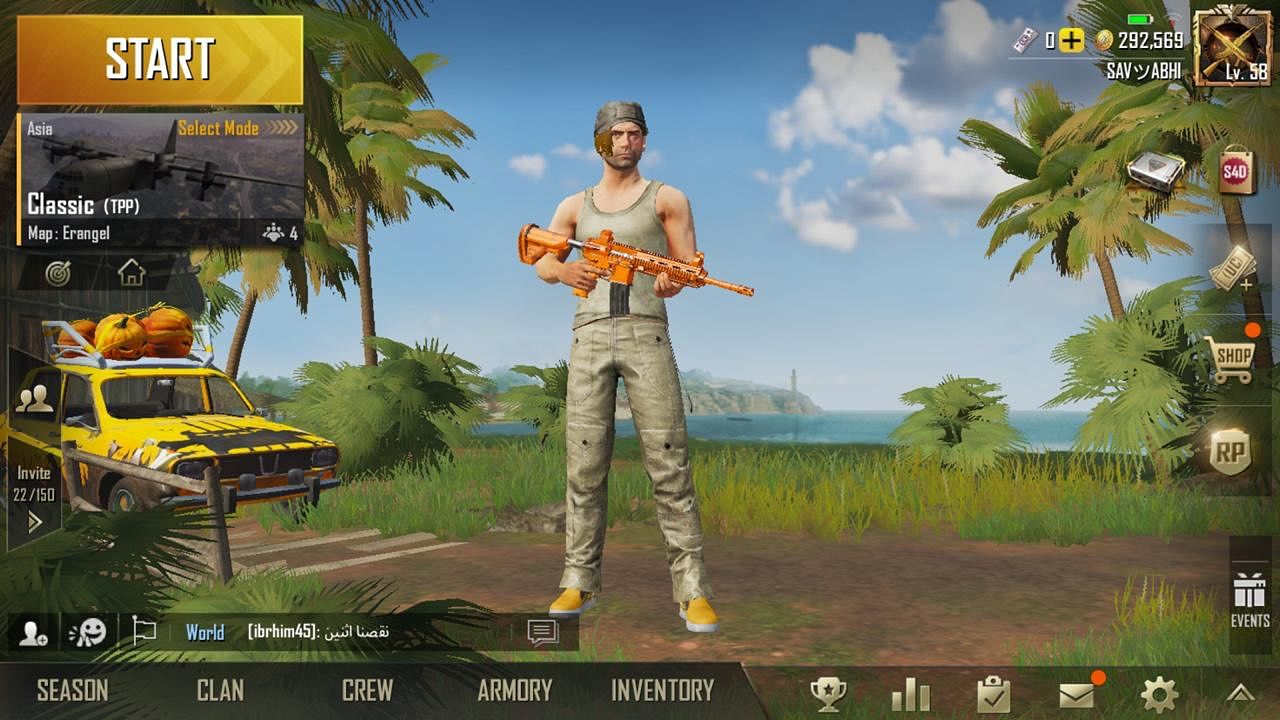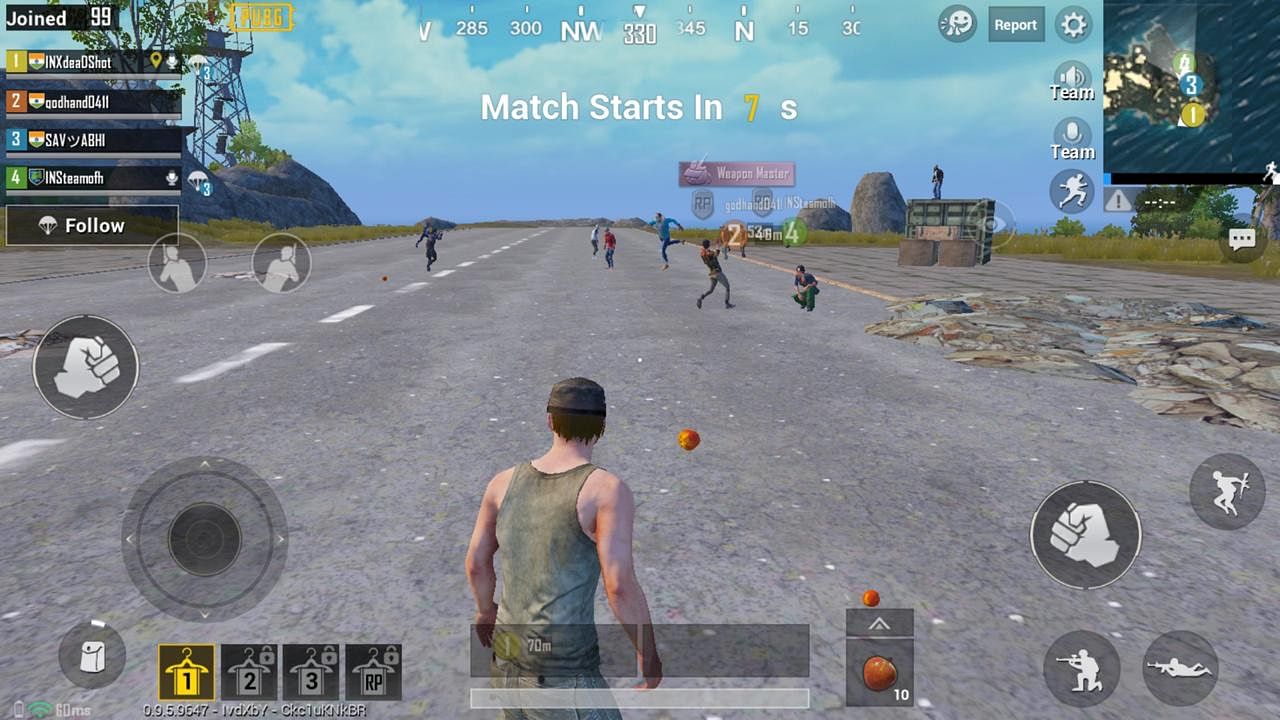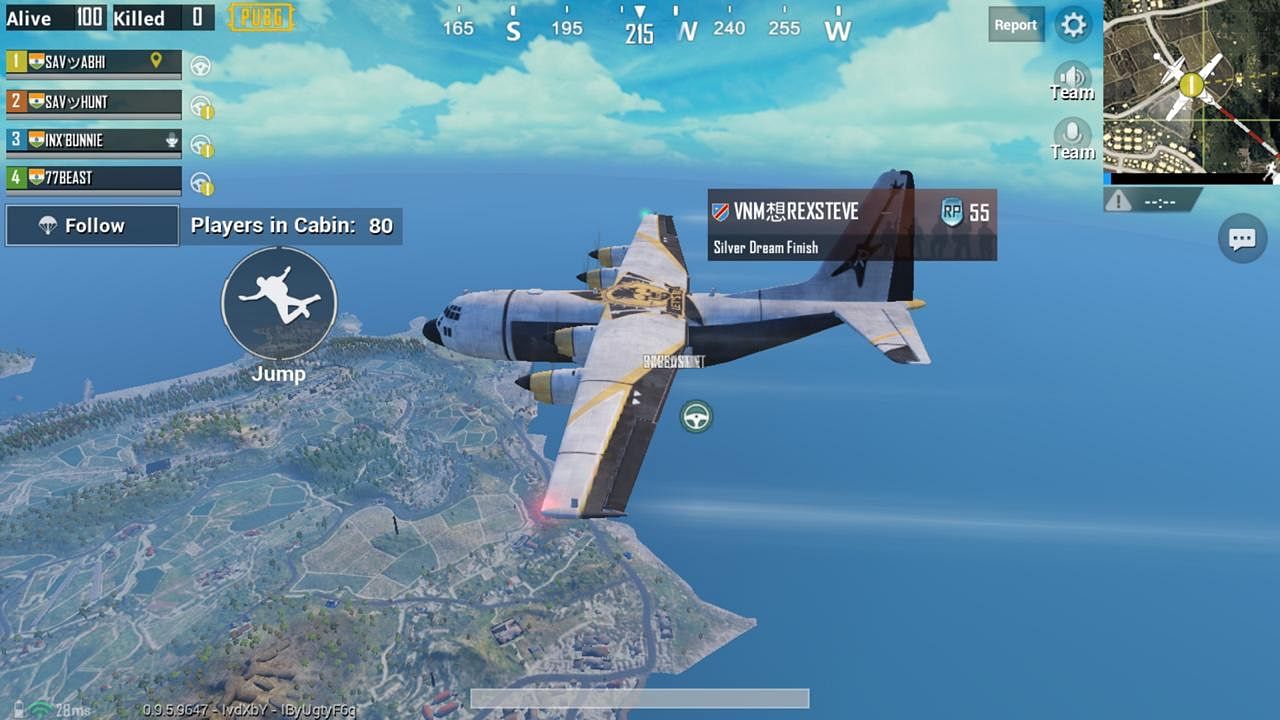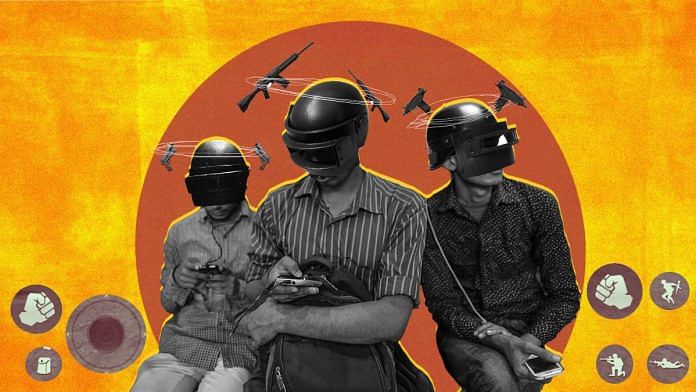Bloody, battle-thirsty video game PUBG is a favourite among young Indian gamer’s. But, it isn’t all about violence; the game offers a chance for romance & more.
New Delhi: The Island of Sanhok in the blue Pacific waters is serene. With lush green vegetation and ancient ruins, it could be your perfect holiday destination. The only problem is that people here are looking to kill, and Indians are obsessed with it.
Welcome to the world of Player Unknown’s Battlegrounds or PUBG, a multiplayer video game. The objective of the game is to be the last man or team standing.
Since its launch in 2017 by South Korean company BlueHole, PUBG has become a rave among millennials worldwide. The company eventually set up a subsidiary — PUBG Corp — to solely focus on the game. This March, it launched a free mobile version of the game in partnership with Tenecent.
In India, PUBG has emerged the best loved video game, according to a Google research report. A Quartz study found that nearly 62% of its 1,047 respondents were playing the game. Most of the respondents were males (92.1%) in the age group of 16 to 24 years.
This demographic has given rise to young adults with gaming addictions, so much so that schools in Bengaluru recently began issuing warnings to parents about it.
The draw
As a game, PUBG is destructive and confrontational. That is precisely what keeps Indian youth glued to it.
“According to Freud, humans need food, sex and violence to survive. This game takes care of the violence part really well,” says Anirban Roy, a Mumbai-based analyst who began playing PUBG as a college student.
Psychologist Prateeskha Khatri explains that the violence gives people a feeling of superiority and victory, which keeps drawing them back.
“There is a lot of hitting and shooting that goes on throughout the game. The sense of victory after killing an opponent overpowers the players. Hence, they do not mind the violent nature of the game at all,” she says.
As a student, Roy used to spend up to six hours daily playing. Now, the 24-year-old plays the game for about an hour before he goes to bed.
“You can kill people mercilessly and also communicate with the victims. It gives the players a sense of superiority. When you are angry with the opponent, the in-built voice chat automatically kicks in to connect the players. So you can even instill fear and intimidation,” says Roy.
While playing, the body releases dopamine, a mood-lifting chemical that induces an adrenaline rush in gamers. This feeding of dopamine is how the game becomes addictive, explains clinical psychologist Roshni Bhagnani.
“Dopamine is also released during gambling, drug and alcohol abuse. (Such) Violent games give players a medium to let out their otherwise suppressed emotions,” she says.

PUBG is also gripping because of the game’s narrative. The storytelling is left to the players and it’s up to them to make or break it. As players move up the levels, the individual stories of their game avatars also build.
Since PUBG can be played from a smartphone, and doesn’t require a console or a computer, its easy access also enables the addiction.
“You get a full-fledged game with all features of a multiplayer for free on a hand-held device. This is why PUBG is so popular,” says Joy Goldar, a Delhi-based game developer.
Also read: This is how sugar daddies and sugar babies find each other in India these days
Topsy-turvy reality
Like any addiction, PUBG is disruptive in reality too. Players often cut themselves off from the rest of the world, forego sleep and other basic needs to keep pace with the game.
Debayan Purkayastha, a 24-year-old brand management employee from Bengaluru, sleeps about four hours a day to be able to play and hold down a regular job. “I play till 4 am and wake up at 8 to go to office,” he says.
How does he do it? An abundance of black coffee through the week, and sleeping through the weekend.
“I have stopped socialising with people, devoting whatever free time I have to PUBG. It is better than human interaction and I have no regrets,” he adds.
Psychologist Bhagnani says addicts prefer spending time in the virtual world because it helps them avoid their real emotions.
“It is easier, and there is greater thrill in unlocking targets and meeting goals. Social interaction and peer engagement may start to seem less gratifying in comparison,” she explains.
For a 24-year-old psychology student from Delhi, the game has become a space to vent anger. A sexual harassment survivor, the tactical violence of PUBG is her way of coping.
“It is a good channel for taking out my frustration. The noise and killing without guilt gives me a sense of peace,” she says.
In some extreme cases, this can lead to deadly consequences. As was the case of a 19-year-old who killed his parents and sister in Delhi and tried to make it look like a robbery. The teen had rented a flat to be able to play video games all day. Psychologists linked his psychopathic tendency to the violent nature of the games he played.

Silver lining
It’s not all bad news, though. In the right measure, PUBG has its redeeming qualities. Amidst the gore, some have found self-confidence, and others even love!
Akshay Lokhande has enjoyed finding his voice in the game, quite literally.
“I have been told that my voice is quite different. It is heavy and nice. So whenever I play with a random squad, they are quite intrigued by my voice. It makes me feel good about myself,” says the 28-year-old animator from Mumbai.
By default, the voice chat feature is turned on, which allows players to interact with their teammates.
For Malancha Biswas, a self-described introvert and second-year sociology student, PUBG is where she met the “love of her life”.
“I come from a girls’ college, so it is nearly impossible for me to meet and interact with guys of my age. Dating apps like Tinder and Hinge suck. Mostly, you end up meeting creeps. So I spend most of my free time playing PUBG,” says Biswas. It was in this time she met her boyfriend Rishi.
“We used the voice-call to connect. He had a sexy voice. I plucked up my courage and asked for his number,” she says.
Roy remembers his girlfriend getting upset about the amount of time he spent gaming.
“My girlfriend would be suspicious of me because she heard stories of people meeting on PUBG and going on dates. It’s the new Tinder!”
Prateek Goyal and his friends have turned PUBG into their hang out spot. Since the group is spread out across time zones, the game makes keeping in touch more fun.
“It’s probably the easiest way to catch up with friends. Everyone from my school group is on a different continent right now. So we play PUBG and talk while playing. That way we are doing something together, and it is a lot like school,” says the 26-year-old game developer from Delhi.
Anumita Joshi, a school counselor based in Pune, says what PUBG does for Goyal and others like him is provide a sense of collective reinforcement.
“Imagine spending an hour in the game with your old friends. The fact that you are talking to each other in spite of being miles apart is satisfying. The game-play might be violent but a minor kill as a group instills a sense of collective achievement,” she says.

As PUBG players parachute over islands and drop right in to the thick of the action, they are creating survival strategies not just for the virtual, but also their real worlds.
Every level cleared in the game is an achievement that boosts gamers in their regular lives. Add to that the possibility of romance and friendship, it does seem that PUBG can feel more real than not.
Also read: 10 apps on India’s smartphones you’ve probably never heard of




Well it already seems that u all r retards cuz if dopamine release is an issue than u should stop using mobile phone cuz they r the main cause to release dopamine yaa I don’t disagree with addiction thing that’s something but chanting in article about a game just not fair cuz u can’t stop and if there’s something u can’t do anything about why to waste your time on that